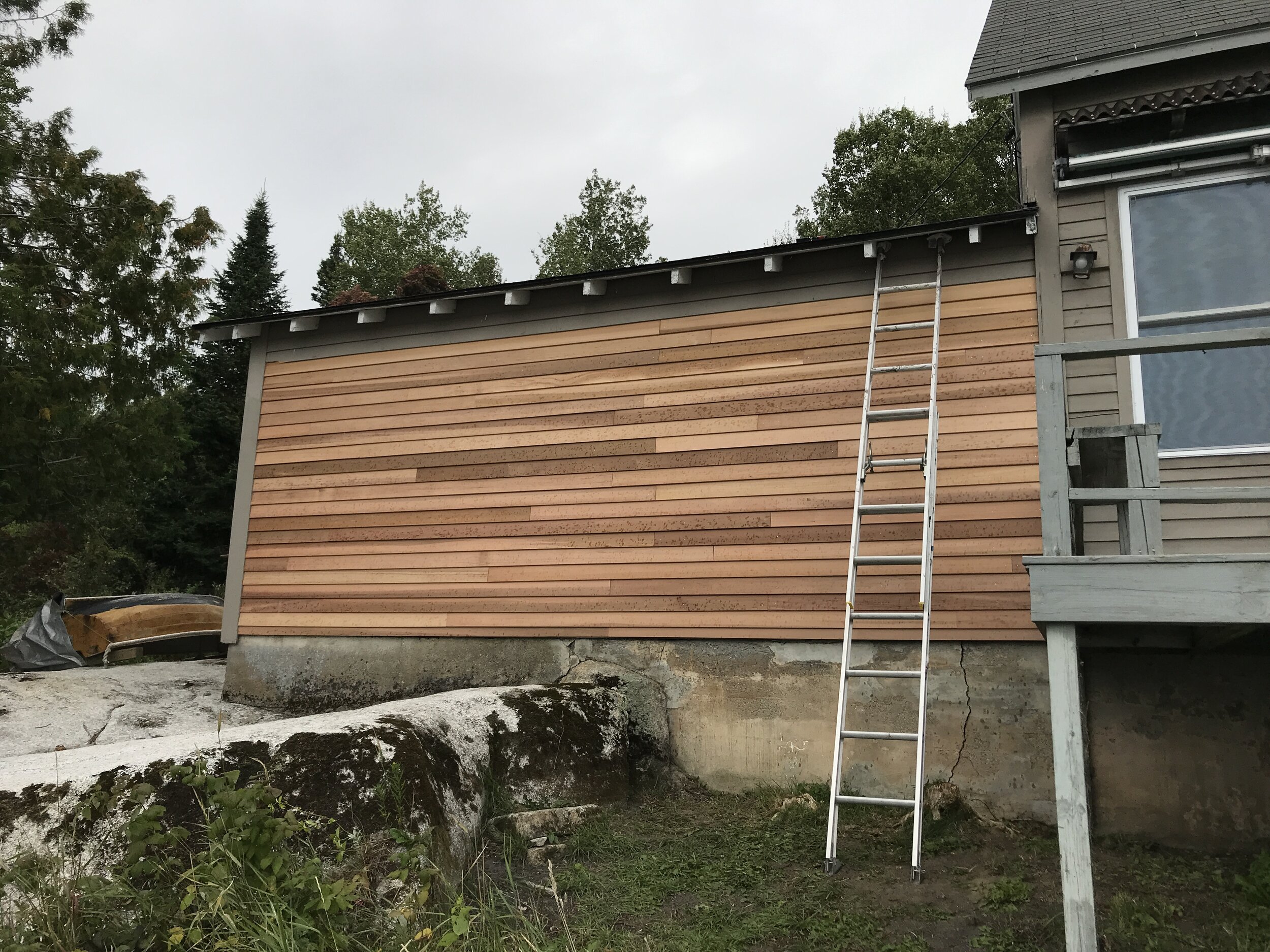Ignoring Sunk Costs
Hours. Not that I’ve kept track, but I have to guess we’ve put in a total of about 30 hours scraping that external garage wall. Maybe more. Between my parents, Jeremy, and me we’ve added a lot of paint chips to the trash.
Scrape. Glare at photographer. Scrape some more.
It was at about hour number four for me on Friday, when every time I went over “totally scraped and ready for paint” areas and more wood came flaking off, that I asked Jeremy to take a look again. That wood is pretty rotten. Splitting and cracking and falling apart with every pass of even a dull scraper. Is it better to just replace that whole wall? (FYI he’d already been asked that same question, by my parents, and had opted to keep on with the scraping.)
But OMG we have HOURS into the scraping already! Shouldn’t that mean we should keep going? I mean, it’s likely to be another 10 hours of prep to get ready to paint. So close!
This idea of sunk costs, or more specifically clinging to sunk costs as a road map, is one that’s pretty easy to understand. You’ve spent all this time and money (sometimes anyway) on something you really thought was a good idea. Changing direction feels in some way like an admission of failure. Like all the work you (or your parents, ahem) have done is wasted.
But. Continuing to pour resources into that “good idea” just because you’ve already spent time that can’t be recovered? Why throw more resources into it?
What we realized with this garage wall project is that we’d be sinking MORE energy into something that would have to be scrapped and redone soon anyway. And by “soon” I mean “next year”. Since we hope like heck next year we will be sailing on Calypso and not working endlessly on the OPO, putting off a project like this to next year would involve paying someone else to do it. Which doesn’t exactly fit into the budget.
A quick call to the local lumberyard and a silent mouth drop at the cost of cedar siding later, we busted out the crowbars and got to work.
Sweeping off the vines. Old siding over oldER siding. (We only removed one layer.)
By Sunday afternoon, we’d removed all the old siding (or the top layer of old siding anyway), wrapped it in house wrap, and installed an entire wall of new cedar siding.
Tools used: Crowbars and hammers. Broom. Chalkline (to mark where we think the studs were behind the layer of siding). Square and sliding measure thingamabob. Chop saw. Drill and 2 different bits. 2.5 inch nails and 2 inch nails. Ladders of various sizes, with wood blocks to level them out in some cases. Pencil (to mark where the wood needed to be cut.)
New wall, complete with rain drops.
All in all, we spent about 46 person hours on this, and there’s still some caulking to be done before we can paint. Seems maybe like a waste, right? 10 hours to paint as opposed to 46 or so.
But this way, when we paint, we can be fairly assured that the work will last. That we won’t be facing a wall replacement (and more paint) in the next year or two or even 20.
Gauging whether or not to continue a project, if you’ve identified a major flaw in the idea or execution, just because you’ve already got a lot of hours into it, isn’t necessarily the right way to think about it all. Look forward, not backwards.
And then apologize for asking your parents to scrape all those rotten boards. They might not be so fast to agree to help in the future!
We were kind of jazzed to get it done. Right as the rain hit!




